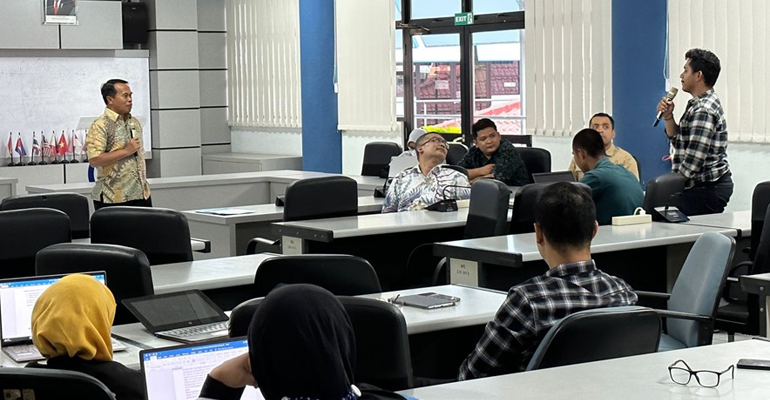IPB University Invites Experts and Academicians to Discuss Climate Change and Its Risks to Fisheries and Marine Life

The Faculty of Fisheries and Marine Sciences (FPIK) and the Center for Coastal and Marine Resources Studies (PKSPL) at IPB University collaborated in hosting a seminar and discussion on the theme of “Climate Change and Risks to Fisheries and Marine Life.” The event, held in the Senate Discussion Room at the IPB Dramaga Campus, brought together experts from universities, organizations, and government institutions.
“Climate change must be understood as a consequence of human activities. Therefore, it is the responsibility of all of us to preserve the natural balance,” emphasized the Dean of FPIK of IPB University, Prof Fredinan Yulianda, in his opening speech.
The same sentiment was echoed by Prof Yonvitner, Chairman of PKSPL at IPB University. He stated that the need for strengthening adaptation and literacy efforts to reduce the risks of climate change in the fisheries and marine sector is a responsibility that falls on all parties involved.
Based on the presentation by Chairman of the Board of Traditional Fishermen’s Health of Indonesia (KNTI), Dr M Riza Adha Damanik, climate change poses vulnerabilities within the fishing communities, which are still categorized as impoverished. Discourse related to this issue, both regionally and globally, must be encouraged to find solutions for small-scale fishermen and fisheries.
“KNTI has conducted research on the socio economic vulnerability of traditional fishermen in four villages: Ambon, Pemalang, South Aceh and Pangkep. It turns out there are four factors that make fishing communities more vulnerable to climate crises: low job diversification, high economic burdens, minimal job protection, and low economic capacity,” he explained.
To address these issues, a Special Staff to the Minister of Cooperatives and Small and Medium Enterprises (Kemenkop UKM) recommended integrated efforts related to adaptation, mitigation, coastal community resilience, capacity building, access to basic services, and improved protection of fishermen from capture related risks.
Meanwhile, Prof Jonson Lumban Gaol, a Professor at FPIK at IPB University, acknowledged that Indonesia’s fisheries are highly sensitive to climate change, but their capacity for adaptation is still low. Yet, climate variability and change significantly affect Indonesia’s marine conditions.
“Climate elements are crucial for fisheries and marine life to sustain future efforts. Therefore, we must study marine and fisheries issues from a small scale perspective, as the ocean is more dynamic than the land,” he explained.
“Furthermore, Indonesia’s marine waters vary every 10 years due to climate variability, and our knowledge in this regard is lacking. This is something that needs to be managed. The potential for capture fisheries to decline dramatically due to climate change, particularly due to the influence of El Nino-Southern Oscillation (ENSO) and the Indian Ocean Dipole, is a concern,” he emphasized.
In conclusion, he pointed out that the potential losses in capture fisheries are higher than in agriculture when impacted by climate change. Therefore, he stressed the need for research and monitoring activities to find solutions, adequately funded to address these challenges. (IAAS/DSR)



